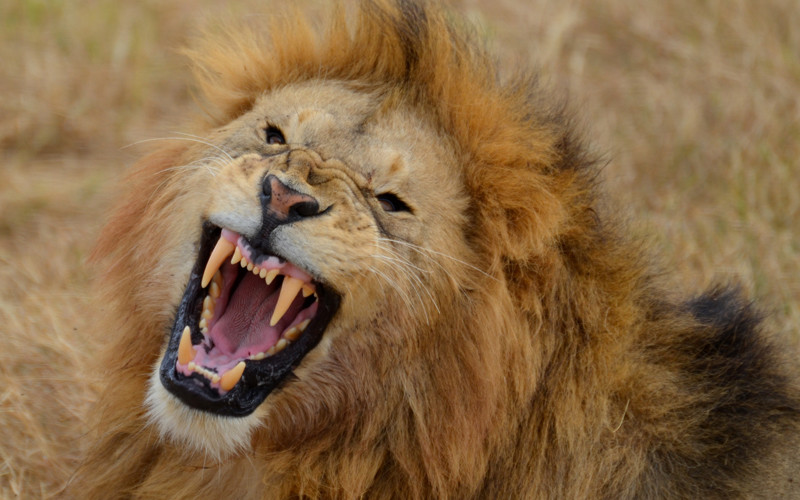
noun
- the act of a person, animal, or thing that roars.
- a loud, deep cry or sound or a series of such sounds.
- Veterinary Pathology. a disease of horses, caused by respiratory obstruction or vocal cord paralysis, and characterized by loud or rough breathing sounds.
adjective
- making or causing a roar, as an animal or thunder.
- brisk or highly successful, as trade: He did a roaring business selling watches to tourists.
- characterized by noisy, disorderly behavior; boisterous; riotous: roaring revelry.
- complete; utter; out-and-out: a roaring idiot; a roaring success.
adverb
- very; extremely: roaring drunk.
verb (used without object)
- to utter a loud, deep cry or howl, as in excitement, distress, or anger.
- to laugh loudly or boisterously: to roar at a joke.
- to make a loud sound or din, as thunder, cannon, waves, or wind.
- to function or move with a loud, deep sound, as a vehicle: The automobile roared away.
- to make a loud noise in breathing, as a horse.
verb (used with object)
- to utter or express in a roar: to roar denials.
- to bring, put, make, etc., by roaring: to roar oneself hoarse.
noun
- a loud, deep cry or howl, as of an animal or a person: the roar of a lion.
- a loud, confused, constant noise or sound; din; clamor: the roar of the surf; the roar of lively conversation from the crowded party.
- a loud outburst: a roar of laughter; a roar of approval from the audience.
adjective
- informal very brisk and profitable (esp in the phrase a roaring trade)
- the roaring days Australian the period of the Australian goldrushes
- Irish derogatory, informal (intensifier)a roaring communist
adverb
- noisily or boisterously (esp in the phrase roaring drunk)
noun
- a loud prolonged cry
- a debilitating breathing defect of horses characterized by rasping sounds with each breath: caused by inflammation of the respiratory tract or obstruction of the larynxCompare whistling
verb (mainly intr)
- (of lions and other animals) to utter characteristic loud growling cries
- (also tr) (of people) to utter (something) with a loud deep cry, as in anger or triumph
- to laugh in a loud hearty unrestrained manner
- (of horses) to breathe with laboured rasping soundsSee roaring (def. 6)
- (of the wind, waves, etc) to blow or break loudly and violently, as during a storm
- (of a fire) to burn fiercely with a roaring sound
- (of a machine, gun, etc) to operate or move with a loud harsh noise
- (tr) to bring (oneself) into a certain condition by roaringto roar oneself hoarse
noun
- a loud deep cry, uttered by a person or crowd, esp in anger or triumph
- a prolonged loud cry of certain animals, esp lions
- any similar noise made by a fire, the wind, waves, artillery, an engine, etc
- a loud unrestrained burst of laughter
late 14c., present participle adjective from roar (v.). Used of periods of years characterized by noisy revelry, especially roaring twenties (1930); but also, in Britain, roaring fifties (1892). Roaring forties in reference to exceptional rough seas between latitudes 40 and 50 south, is attested from 1841.
Old English rarian “roar, wail, lament, bellow, cry,” probably of imitative origin (cf. Middle Dutch reeren, German röhren “to roar;” Sanskrit ragati “barks;” Lithuanian reju “to scold;” Old Church Slavonic revo “I roar;” Latin raucus “hoarse”). Related: Roared; roaring.
late 14c., from roar (v.) and Old English gerar.
 Liberal Dictionary English Dictionary
Liberal Dictionary English Dictionary